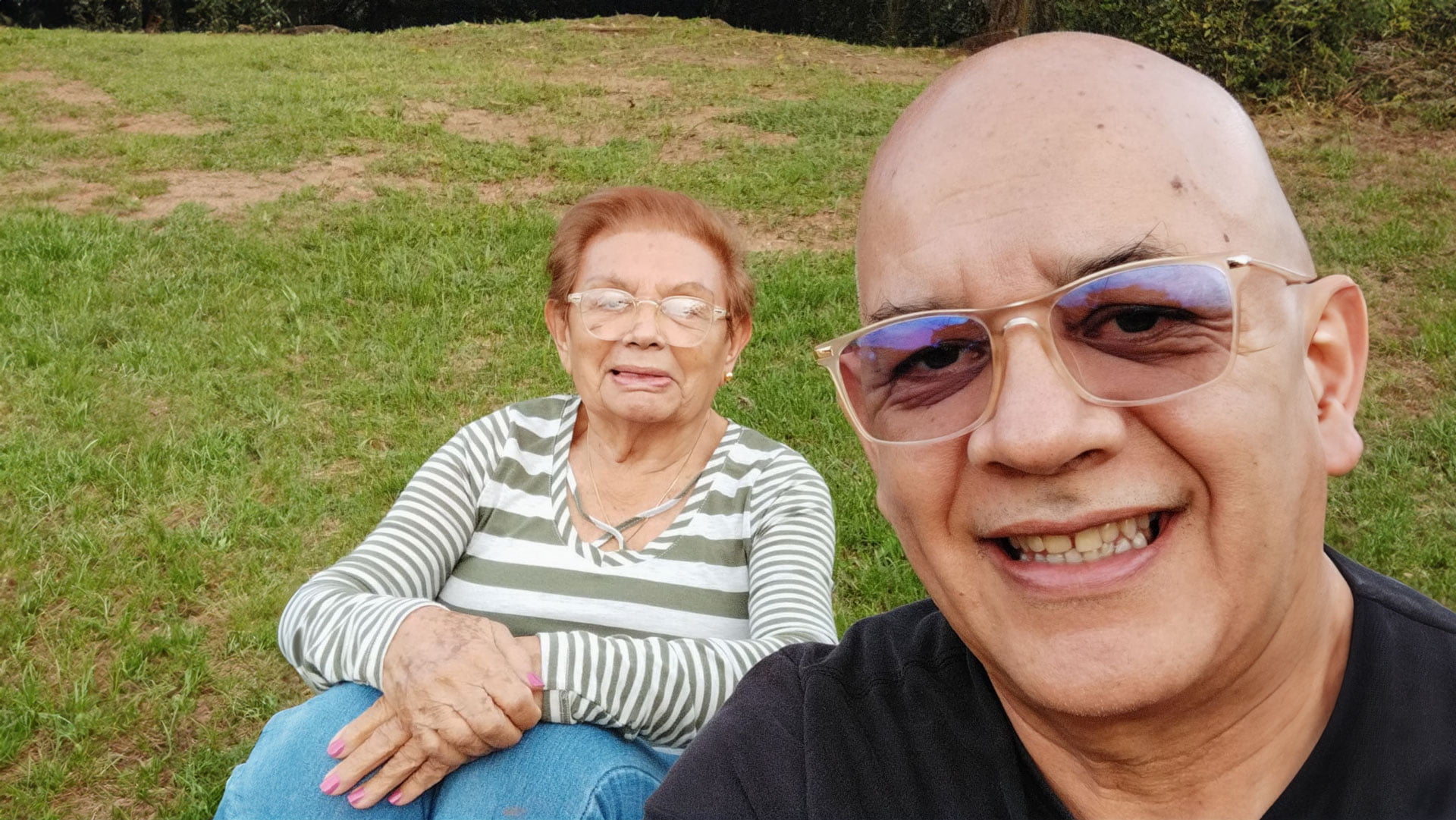


Gerardo is a medical doctor and he knows very well what Alzheimer’s does to people’s lives. That is why, when his mother was diagnosed with the disease, he moved in to be by her side and devoted himself to her care, fearing she would forget about him. That challenging family experience eventually led to the creation of a foundation that promotes mental and cognitive health in San Cristóbal, State of Táchira.
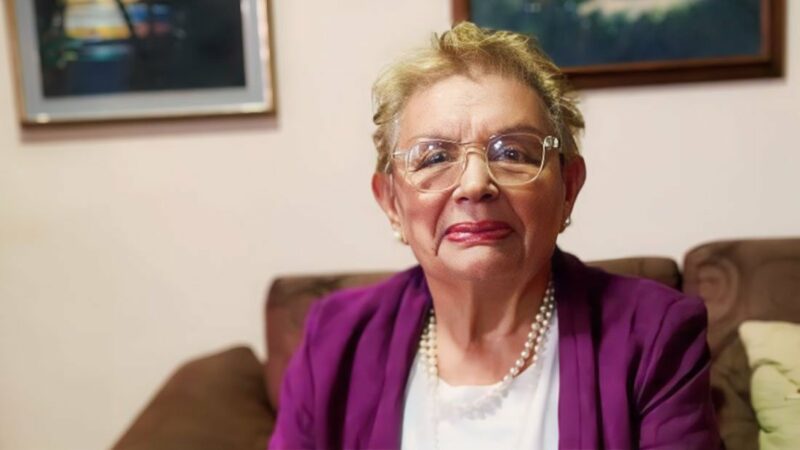 PHOTOS: FAMILY ALBUM
PHOTOS: FAMILY ALBUMIn the peaceful environment of a house in Táchira, as the sun’s rays begin to filter through the curtains, you will find Margarita, an 88-year-old woman whose life is marked by a silent battle against Alzheimer’s. For five years now, her existence is a tapestry of fleeting moments and memories that fade away as quickly as they arrive.
She wakes up at 6:00 a.m. sharp, as she has done her entire life. Gerardo, a medical doctor and the third of her five children, gets ready to start another day in the dedicated task of caring for her.
The disease struck when Margarita was 82. The occasional lapse of memory progressively took over her mind, robbing her of the ability to remember her past life. At first, she would repeat herself over and over and had trouble naming familiar objects, which seemed to unregister mysteriously from her brain. Gerardo lived in Maracay, more than 434 miles away, but he made sure to visit his mother every three months. He began to notice the warning signs and kept his eyes open.
In December of 2019, Gerardo learned about an Alzheimer’s screening session organized by the Táchira chapter of the Alzheimer’s Foundation and asked his sisters to have Margarita tested. That was when they were given the diagnosis. He felt as if an earthquake had shaken the very foundations of his world. As a doctor, he knew well what the disease does to people; however, he never thought he would have to grapple with it with her own mother as a patient.
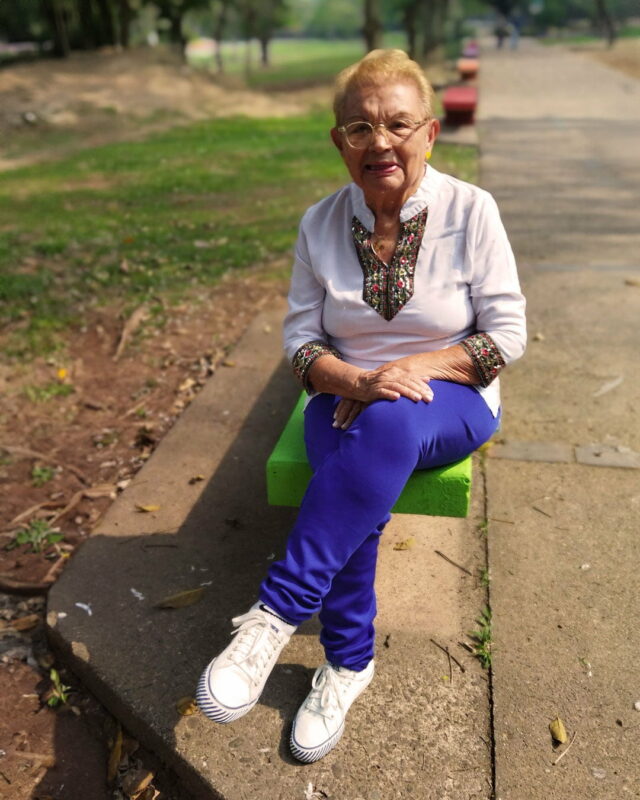
Gerardo tapped into the knowledge he had acquired during his medical career to stand up to the new challenge.
Until his mother’s screening results, he was working at Gestión Ocupacional, a company he established in Maracay in 2010. But in 2019, aware of the difficult times ahead of them, he decided to move to San Cristóbal, knowing that he would be able to resume his work in the future because the articles of incorporation of the company provided for it to set up branches elsewhere in the country.
Once settled in Táchira, he began to hold meetings with his family in order to discuss the struggle that awaited them and how to deal with the inevitable cognitive impairment of Margarita. The meetings proved to be essential, particularly in light of the fact that many of them were over 50 and inherently at greater risk of developing that type of disease-related aging.
He joined efforts with a team of volunteers to organize the meetings. What started as a simple exchange of information with relatives turned into something bigger: a foundation in his hometown to promote mental and cognitive health within the community. He named it after his late brother, Carlos Enrique Lobo Mujica, who had passed away two decades earlier in Colombia: while searching for the engagement ring he would give to his bride, a hypertensive crisis made him convulse and collapse on a rug, where he died of mechanical asphyxia. Carlos Enrique had always been interested in social work and Gerardo wanted to honor his memory and a loss that, like so many other things, had escaped Margarita’s mind.
— “Where is Gerardo?” she asks, looking Gerardo in the eyes.
— “Well, here, Mom. Who am I, then? Tell me.”
— “Gerardo, my son,” she answers quickly, now without hesitating.
It is at least the third time in five years that this has happened, and it leaves Gerardo’s with a lump in his throat. The thought that at some point his mother might forget about him sends shivers up and down his spine. Everything around him seems to stop for a moment, rendering him vulnerable to the possibility of losing the most important relationship in his life.
At 8:00 o’clock at night, like in a sacred ritual, Margarita and Gerardo are about to go to bed. Given his experience as a caregiver, he decided to sleep next to his mother, for he knows that the disease not only affects memory, but also the emotional and affective connection of its victims.
They sleep in a bunk bed, Margarita in the main bed and Gerardo in the under-bed drawer. Holding his son’s hand, Margarita slowly drifts off. When a slight snoring sound fills the room, Gerardo knows he can sleep through the night.
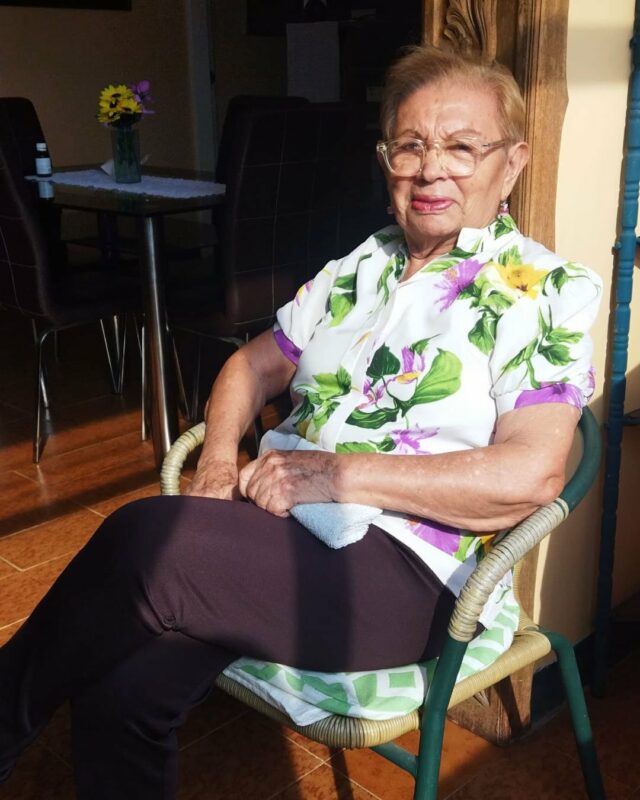
With that last squeeze of their hands, they seal the bond between them in a quiet yet meaningful way.
In 2019, there were an estimated 134,849 to 173,312 people in Venezuela with dementia, of which Alzheimer’s is the most common type. According to the Global Burden of Disease Study —a comprehensive global epidemiological analysis effort led by the Institute for Health Metrics and Evaluation, located in the UW College of Medicine—, that figure is projected to rise to between 429,118 and 673,874 by the year 2050, an indication of the course of a disease for which there is no official information available in the country.
Gerardo and Margarita’s day starts in the kitchen. The aroma of freshly brewed coffee fills every corner of the house. Margarita seats in a chair, ready for the physical exercise routine that helps her body navigate the shadows of Alzheimer’s. Like your regular gym trainer, he guides his mother for between 30 to 45 minutes in a sequence of slow movements to strengthen her buttocks and the muscles in her legs and arms.
— “It’s time for breakfast,” Gerardo tells her as soon as she finishes her cup of coffee.
Margarita follows her guardian’s commands to the letter. Then, for 20 minutes, she dives deeply into books that take her to faraway places and times gone by. Now, where she truly finds refuge is in the color-box on the table: she takes a brush and starts to paint, letting her emotions flow with each stroke of her hand.
Gerardo is still single. He dedicated himself to studying medicine and, later on, to caring for his mother. Marrying has never been a priority. He fears things could get more complicated if he were to tie the knot, and he knows that his happiness does not depend of a relationship of that kind. His greatest fear, though, is that his mother will fail to recognize him.
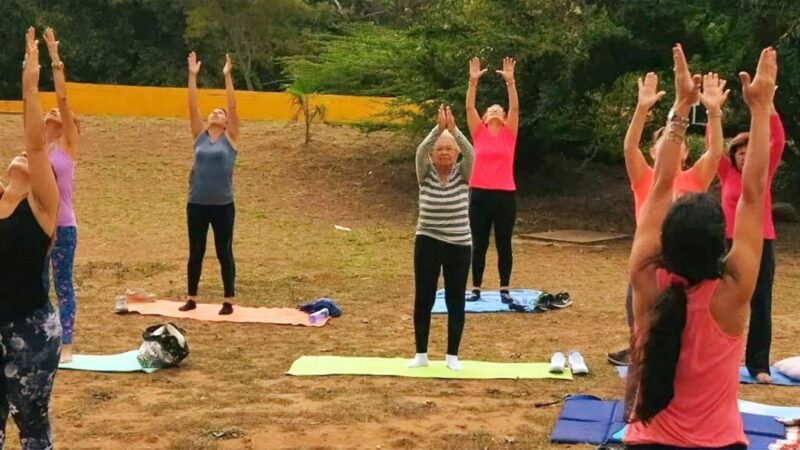
Not only does Gerardo take care of Margarita day in day, but he also works as a medical specialist in occupational health at the Oncológico del Táchira cancer center and teaches cooking at the Venezuela’s Culinary Education Institute.
And that’s not all: in his constant search for ways to help others, he offers medical consultations at his foundation.
Those are no ordinary meetings between a doctor and his patients. He has made them “family talks”, as he himself calls them. In his opinion, patient care transcends the boundaries of conventional medicine, which is why he provides a space where ties are forged, experiences are shared, and mutual support is offered.
Among the experiences that Margarita shares about herself is one that shows that not all the strands that connect her with her past are broken. Oswaldo, her ex-husband, remains a constant presence in her life, even though they divorced more than thirty years ago. Every once in a while, she talks to him and to Blanquita, his current partner, on the phone. Her five children were born to that marriage, and, as she recalls, the reason for their breakup was that they stopped loving each other as a couple. In the bizarre dance of her thoughts, the memory of her husband continues to defy oblivion. Although their love faded away into the past, it still flickers in the corners of her mind.

This story was written within the framework of the first edition of the Training for Journalists program of La Vida de Nos.
304 readings
Un Comentario sobre;